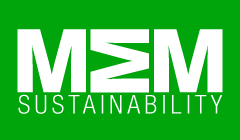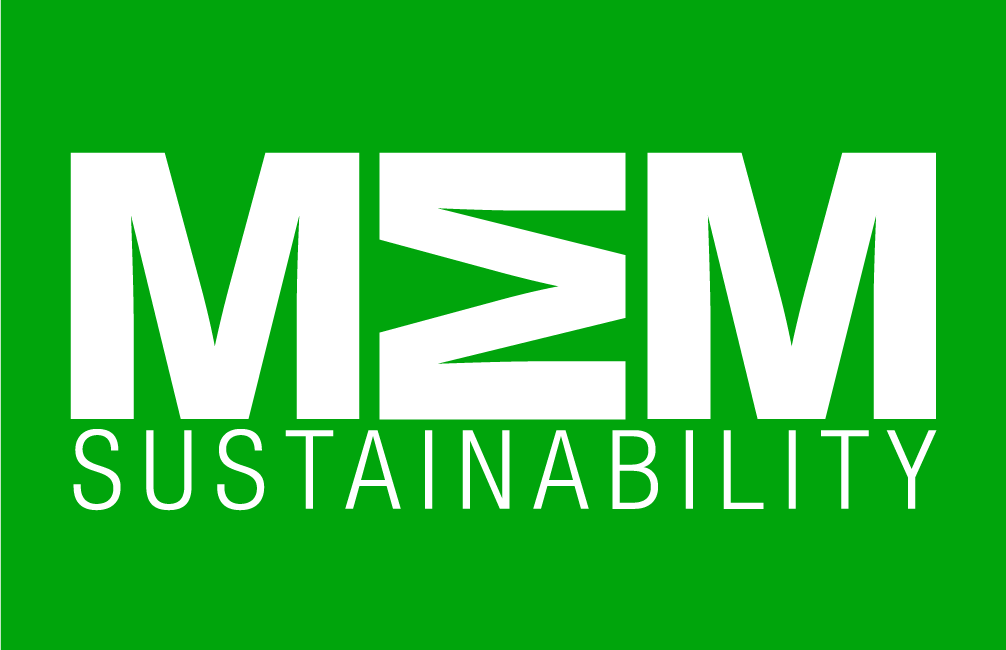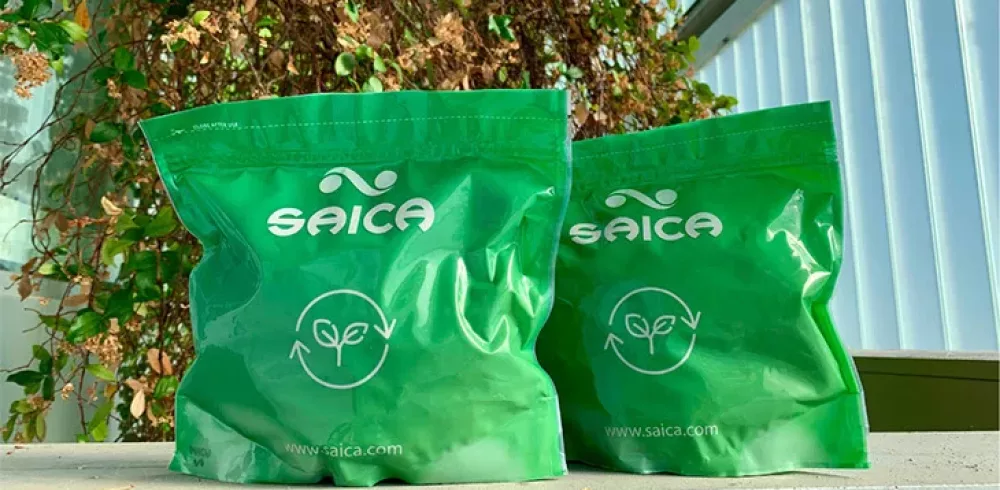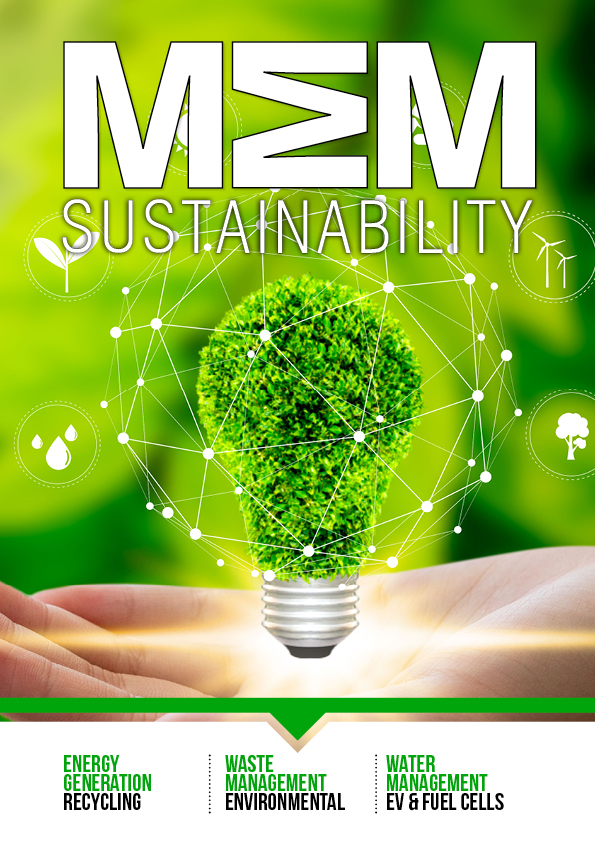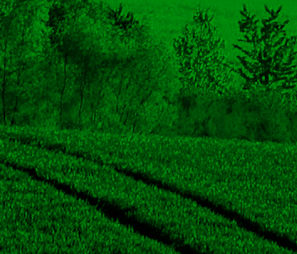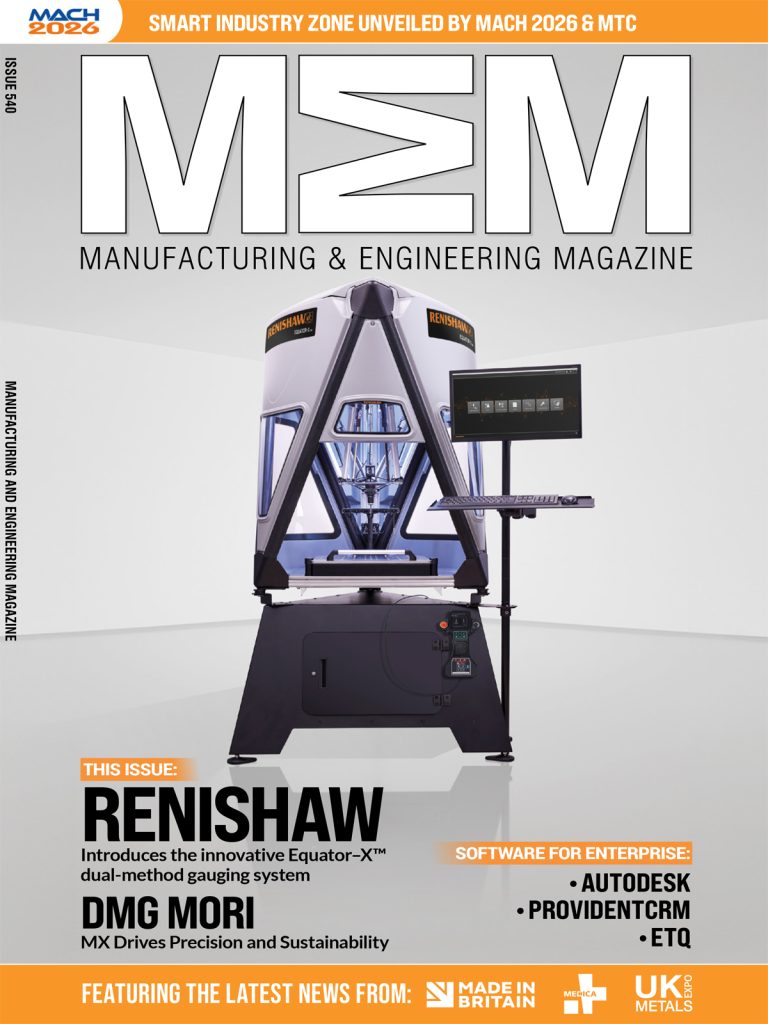Saica Flex: Flexible packaging has always stood out as a versatile solution, offering many benefits to brands, retailers and consumers alike.
Packaging solutions designed with sustainability in mind have become the top priority in a world increasingly conscious of environmental concerns. Flexible packaging is making significant strides in this area thanks to its minimalist design, but admittedly, more can be done.
When it comes to potential routes for aligning flexible packaging even more closely with the circular economy, innovation and re-design are happening everywhere you look. But even more so at the UK’s flagship packaging exhibition, Packaging Innovations & Empack.
Every exhibitor arrives with a message and according to Miguel Angel Dora, General Manager of Saica Flex, his message could be distilled into one word – sustainability.
“Without doubt, the key message is sustainability,” he said. “And when that comes from Saica, that’s a real message. On the business’s paper side, we have operated with a circular business model for more than 80 years. Circularity is in our DNA.”
These are exciting times in flexible packaging. And that’s why Saica Flex, Saica Group’s division for flexible packaging, chose to showcase recyclable materials at the two-day show.
By integrating sustainability into its strategy and placing it at the core of its business, the Saica Group has adopted the circular economy as the driving force to achieve a more responsible production model.
As the world seeks more circular packaging solutions, Miguel Angel Dora believes fine-tuning the processes in other areas and with different substrates in mind can help position Saica’s flexible packaging portfolio as a frontrunner.
“We already collect paper, recycle the paper, and create corrugated boxes, so our idea with the flexible packaging business is the same,” he added. “It’s to make flexible packaging more sustainable every time.
“We do that in several ways, and one of them is paper. We can say we’re experts in paper, and one of our commitments for 2025 is to have at least 15% of our structures made from paper. We’re running well to reach that target. That’s one of our main commitments, and it’s one of the things we will focus a lot of time and energy on.”
The company has continued to make advancements in thickness reduction across various packaging structures and consistently incorporates PCR (Post-Consumer Recycled) content into its packaging solutions.
Saica Flex’s goal is to achieve 100% of its products designed for recycling (DFR) by 2025.
“Our products are mainly contact-sensitive products,” he continued. “So, when you talk about paper, you need to make sure it can reach certain levels of barrier, and we’re still investigating the levels we can reach. On top of that, the kinds of applications that are most suitable, as well as the sealing properties and printing, all remain a challenge. Films are also a challenge. Although recyclable mono materials are the way to go, if other materials were used previously, there was a reason for that. Some you can seal better; some you can print on better. Now, we have to provide all of that in one single material, which means a huge amount of R&D, but for us, that’s the other part of our DNA.
“We invest heavily in R&D, and we have a huge, dedicated facility in our headquarters, but for us, it all makes for a good journey. We’re here because we think we’ve done it; we’ve got the materials and can make a difference.”
Only last year Saica Group unveiled its Research, Development & Innovation (R&D&I) Centre at its El Burgo de Ebro plant in Zaragoza, Spain.
The new R&D&I Centre aims to assist four divisions, Saica Flex among them, in developing new products, improving raw material efficiency, and offering advanced characterisation services for materials and processes.
“A piece of packaging can have the barrier properties and the levels of performance that the product requires, but it must also be recyclable,” continued Miguel Angel Dora. “Legislation from different governments worldwide will specify in more detail what is and isn’t recyclable, but in our case, we’re the ones that also recycle that piece of paper or that pack. When we work with R&D and make claims, they’re real claims. They have to be genuine because afterwards, we’re the ones needing to do the recycling.
“When we’re talking about films, it’s true that we’re facing different challenges because we can design packaging to be recycled. We have another claim that in 2025, we want 100% of our structures to have the option to be designed for recycling, but after that, it has to be collected, sorted and recycled, and it’s here where there is more work to be done. Not necessarily by us, but by administrations, companies, and third parties on the collection, sorting, and recycling technologies.”
Flexible packaging already brings an innate set of contributions towards sustainability, largely through its ability to minimise waste. It can be designed to fit the product better, reducing the use of excess materials.
On top of that, its lightweight construction results in fewer materials used overall, and the ones that are used often require fewer resources to produce. Then, there is the reduced transportation emissions. But as Miguel Angel Dora points out, this is nowhere near enough.
“We’re focusing all our strategy on sustainability,” he added. “If you see a customer that Saica supplies, they want to meet their sustainability commitments. Sustainability is sometimes not easy. We’re looking at efficiency, cost, and ‘runability’ on the customer’s machines, but sustainability takes up most of our time. The questions we get, the R&D inquiries we get, the questions we obtain from the plants, and the new investments we make are all related to sustainability and producing the most sustainable packaging with the most efficient cost.
“We focus a lot of effort on the end-to-end calculation as we call it at Saica, so when we create something new, what effect does it have from the very beginning, and on raw materials, right until that packaging is on the shelf in the store? We calculate transport, the runability of the customer, the materials, the processes – that’s where we spend most of the time.”
It can be quite overwhelming at an event like Packaging Innovations to see all of the new concepts that are put out there and the different solutions that exist.
But it’s nothing new for Miguel Angel Dora, who is the first to admit that sustainability remains a challenge for the whole value chain, not just Saica Flex, and particularly when it comes to accelerating the transition to constructing a circular economy in flexible plastics.
“In flexible packaging, we had other priorities that were also important. A good example of this is downgauging, and if you compare flexible packaging to different types of packaging, we use less material to carry out the san functions. And that has been the target for many years. Less materials equals less waste and less use of natural resources.
“That has been the main focus for many years, but now is the time to add different actions and different targets on top of that. We need to have the right balance of less materials, less waste and less use of natural resources while making packaging products that are more sustainable and circular.”
From mono-material structures and material science excellence to new recycling technologies, the packaging industry has combined its collective heads across the entire value chain to drive change. This could go some way towards addressing the fact that flexible packaging is not yet recycled on a large scale. That said, when you combine the powerful capacities in research and development at Saica Flex with their collective determination to do the right thing, the future of flexible packaging will undoubtedly be brighter.
Manufacturing & Engineering Magazine | The Home of Manufacturing Industry News
